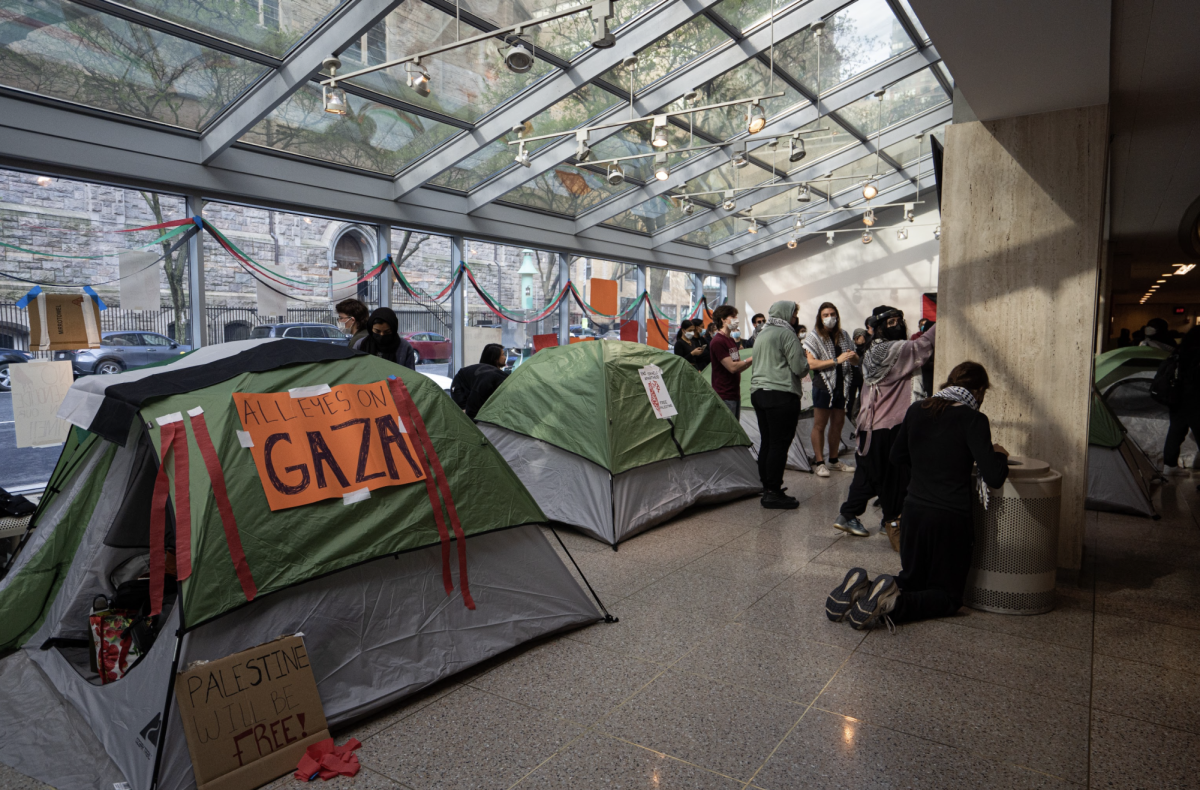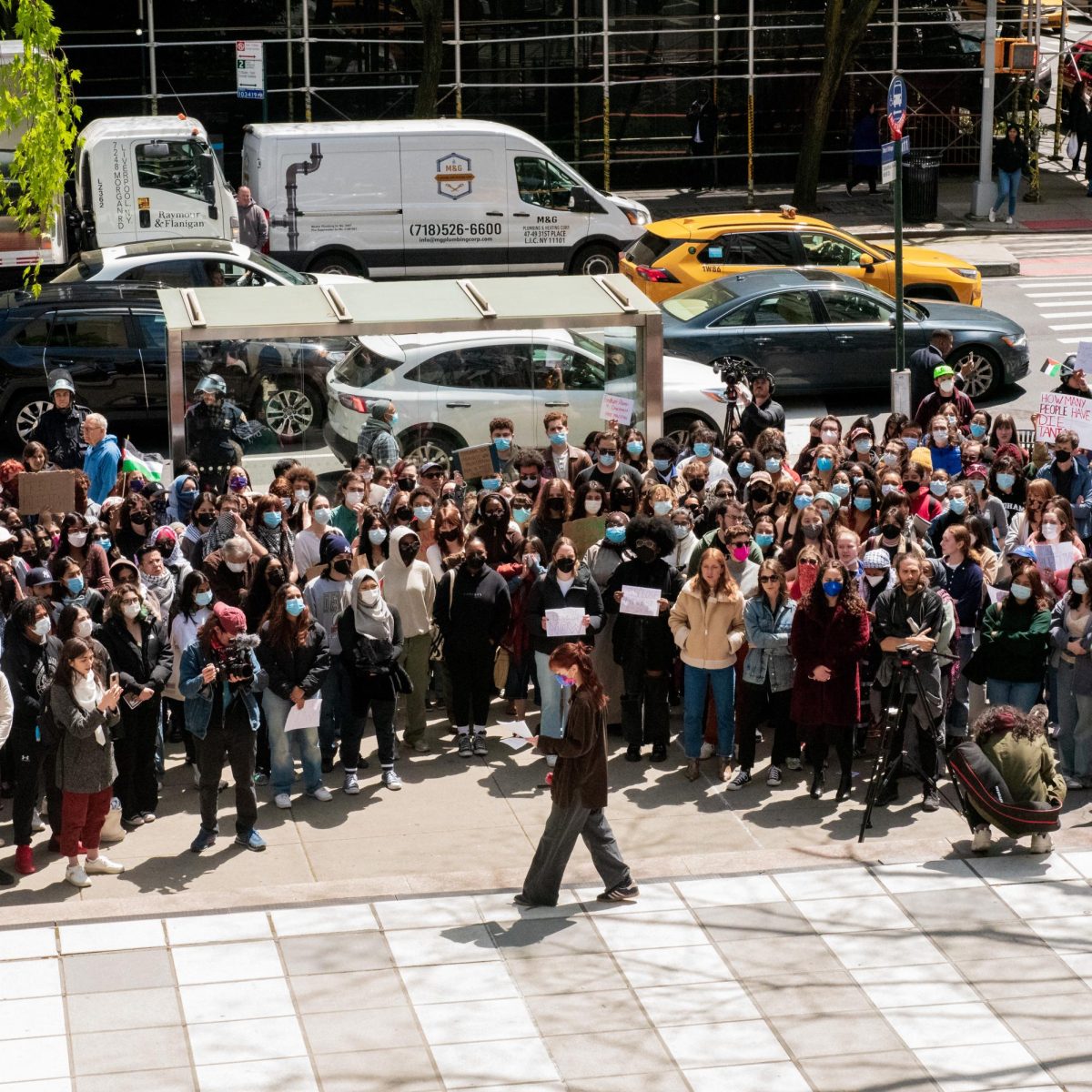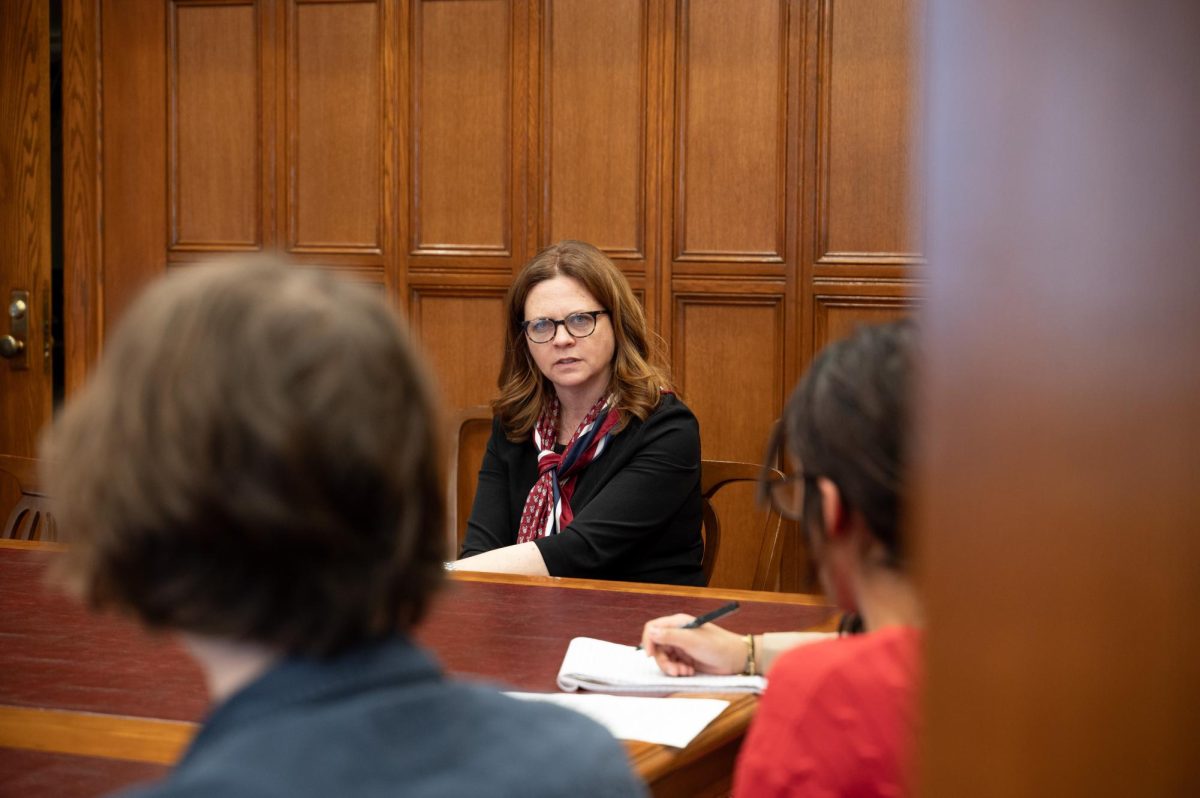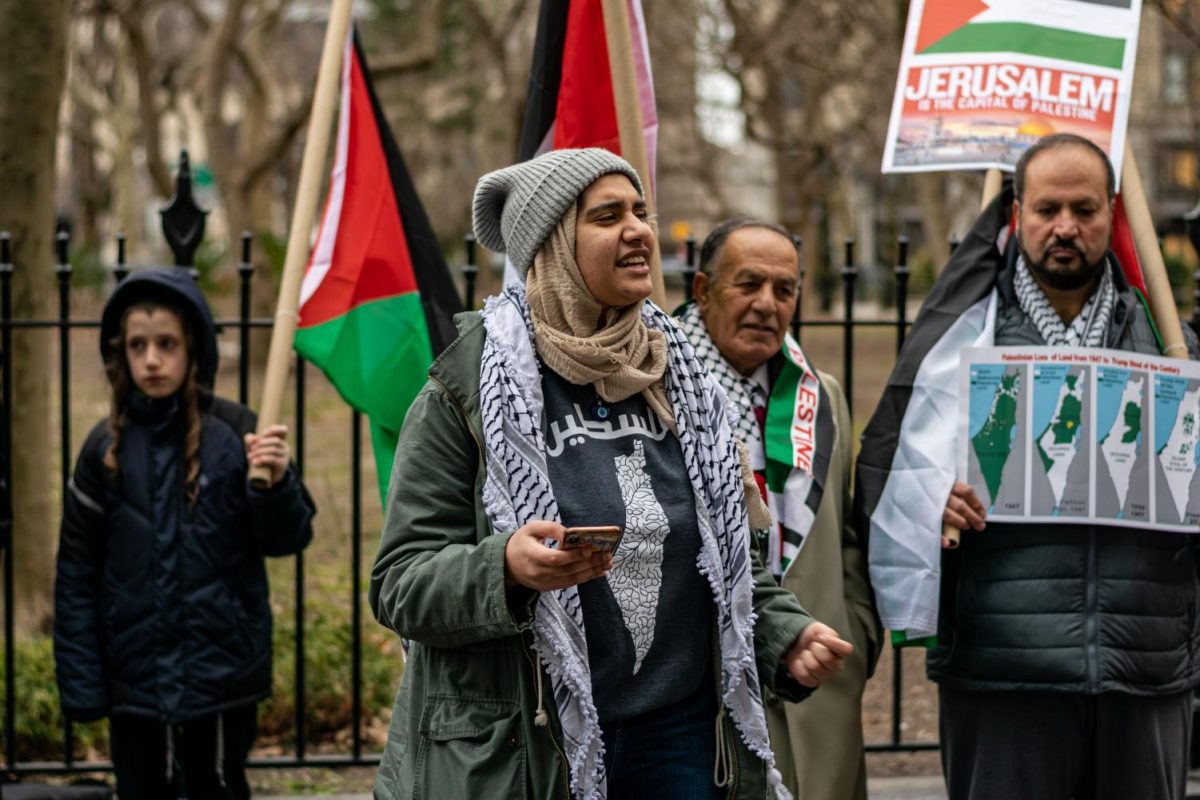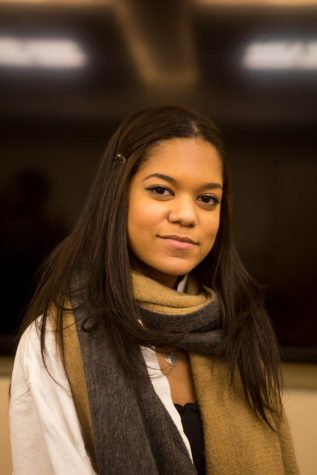Past Student Protests Prompt New Demonstration Policies
The handbook listed scenarios that indicate students have failed to fulfill certain responsibilities, namely the one that “create[s] a volume of noise that prevents members of the University from carrying on their normal activities,” as well as “employ force or violence, or constitute an immediate threat of force or violence.” (COLIN SHEELEY/THE OBSERVER)
February 28, 2018
The Students for Justice in Palestine (SJP) had completed a year-long process in order to gain official club status on campus before consequently being barred by the Dean of Students, Keith Eldredge, in Dec. 2016. The policies were changed as a consequence of the several protests led on campus by members of SJP, as well as other Fordham students.
The newest edition of the Student Handbook, written for the academic year of 2017-18, was published shortly after the four students filed suit against the University, as the hearing was held in early January. However, both handbooks share a strikingly similar perspective in regards to student-led demonstrations on campus.
The only significant change that has been made to the Student Handbook concerning the demonstration policy is an extension of the Procedures for Responding to Obstructive or Disruptive Demonstrations clause.
The Student Handbook consists of “standards of conduct” and university regulations that are routinely modified and updated, as they “are integral to the development of each student” in Fordham’s international community. The handbook essentially outlines the expectations for students’ conduct, whether it is related to academics or non-academic matters.
The handbook listed scenarios that indicate students have failed to fulfill certain responsibilities, namely the one that “create[s] a volume of noise that prevents members of the University from carrying on their normal activities,” as well as “employ force or violence, or constitute an immediate threat of force or violence.”
In relation to SJP, one of the claims that reinforces the dismissal of the formation of their group, was that a student organization of such nature would make others on campus feel uncomfortable, and that it could be a fundamental source of distraction.
However, some policies remained unchanged in both handbooks, namely the policy on dissent, which refers to a student’s strong difference in opinion. Both state that “to insure that freedom is maintained [on campus], expressions of assent or dissent cannot be permitted to infringe on the rights of the members of the University community or the community itself.” The policy also states that “each member of the University has a right to freely express his or her positions and to work for their acceptance whether he/she assents to or dissents from existing situations in the University or society.”
The Student Handbook of 2016-17 had five procedural steps for different instances; the updated version has added 2 points of clarification to the policy as the steps “are generally followed in instances in which a protest that has been coordinated/approved through this Demonstration Policy deviates from the Policy based on the judgment of the Department of Public Safety and/or the Dean of Students.”
The five main points outline how the Dean of Students, as well as the Dean of the college, partake on handling demonstrations that are deemed to be “disrupting the normal process of the area in question.” Public Safety also plays a key role as they are the ones that should be contacted if “physical violence, unauthorized entry, disruption of normal business and/or academic activities, and/or destruction of property” occurs during a coordinated and approved demonstration.
If the demonstrators on campus ignore the warnings issued by the Dean stating to cease any disruptive activity, the President and/or Senior Vice President for Student Affairs or Associate Vice President of Student Affairs “will recommend that the New York City Police be summoned and that they be requested to arrest violators and clear the area.”
The last point in the Demonstration policy states that “Demonstrations/protests that have not been coordinated with/approved by the University through the process described in this policy are not permitted and may be ended without following steps 1-5. Organizing individuals and groups as well as participants may be subject to response through the Student Conduct Process.”
Although only minor changes have been made to the handbook, its updated version shows the impact student-led protests can have on a University, and paves the way for change on campus.

![The handbook listed scenarios that indicate students have failed to fulfill certain responsibilities, namely the one that “create[s] a volume of noise that prevents members of the University from carrying on their normal activities,” as well as “employ force or violence, or constitute an immediate threat of force or violence.” (COLIN SHEELEY/THE OBSERVER)](https://fordhamobserver.com/wp-content/uploads/2018/02/This-one-487x400.jpg)
